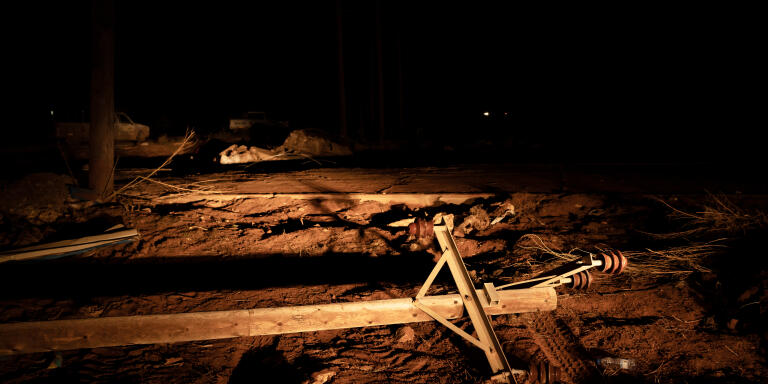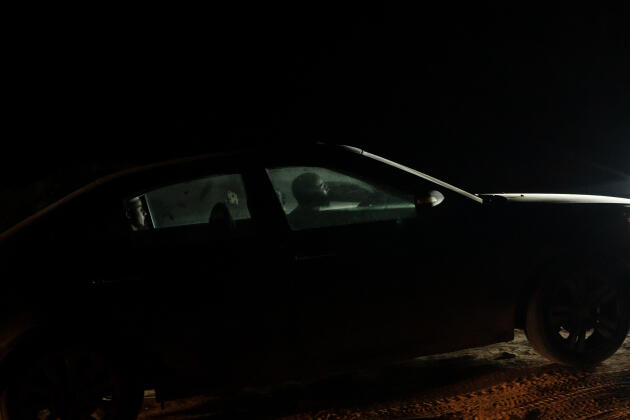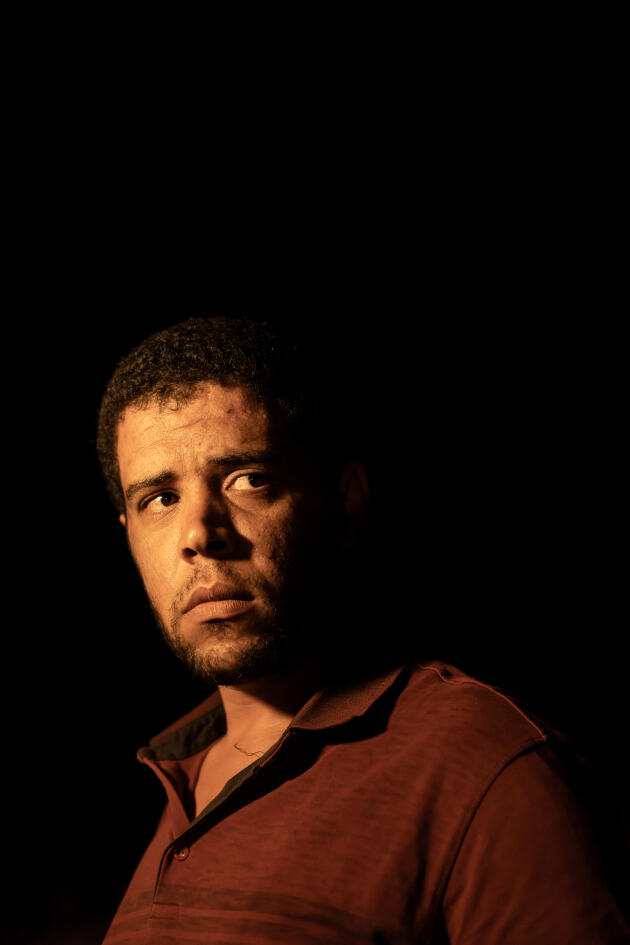


Ravages of storm Daniel pave the road to devastated Libyan city of Derna
FeatureThe only route leading to the Libyan town, where thousands of people perished, bears the scars of the disaster. This dangerous road has already caused the death of several paramedics, but it is also the site of a long chain of solidarity.
From Benghazi, Libya's second-largest city and capital of the east, access to the towns of Soussa, Al-Bayda and Derna and the regions hit by storm Daniel on the night of Saturday, September 9, is down to a single road winding through Jebel Akhdar. A week after the disaster, the road still bears the scars of the torrential rain that flooded the region.

In several places, the deluge tore up whole sections of the road. This severely hampered traffic between Al-Bayda, which marks the entrance to the disaster zone in the Jebel Akhdar, and Al-Bayda, located in the heart of this mountainous plateau, dotted by wadis that the storm had suddenly caused to burst beyond their banks. This dangerous road has already taken a heavy toll on the rescuers who use it. In less than 24 hours, on September 17 and 18, 14 road users died in accidents, including four Greek aid workers and five young Libyan volunteers on their way to or from Derna. According to the World Health Organization, these deaths add to a toll that continues to rise: at least 3,922 people died in the disaster. This figure is provisional, as between 4,000 people have been identified and 10,000 potential victims are still missing.
'We want to help'
On the outskirts of Al-Bayda, the wind tore through power cables and some electricity pylons failed to withstand the flow of water. Despite the darkness, local engineers were trying to restore power to nearby homes. "Electricity has been cut off for seven days, but we hope to have restored 40% of the network before long," explained project manager Mohammed al-Kiliani, his eyes hollow with fatigue. Around 30 people, many of them volunteers, had come to lend him a hand. "We're all affected by this disaster," lamented one of them, Salah Mohammed, a soldier who retrained as an electrician's assistant. "We want to help, so we're using our personal cars, we're using our own money, we're here physically and materially."

A few dozen meters away was Abdeljawad Saad, who lost everything but was holding on to the most important thing: "No one died here." The land making up his family's farm now blends into the pile of mud and the tangle of debris covering the road. The floodwaters swept away the surrounding herds of sheep, cows and domestic animals when, at 3 am, the water surged over a desert pass overlooking the farmland.
Constant stream of ambulances
Aside from the damage, the road also serves as a long chain of solidarity. The continuous stream of ambulances and vehicles filled with volunteers or loaded with donations bound for the affected towns testifies to the commitment of the local population to support the tens of thousands of people devastated by the tragedy. It is also the transit point for international aid and rescue teams arriving at Benina International Airport near Benghazi.
You have 23.19% of this article left to read. The rest is for subscribers only.
